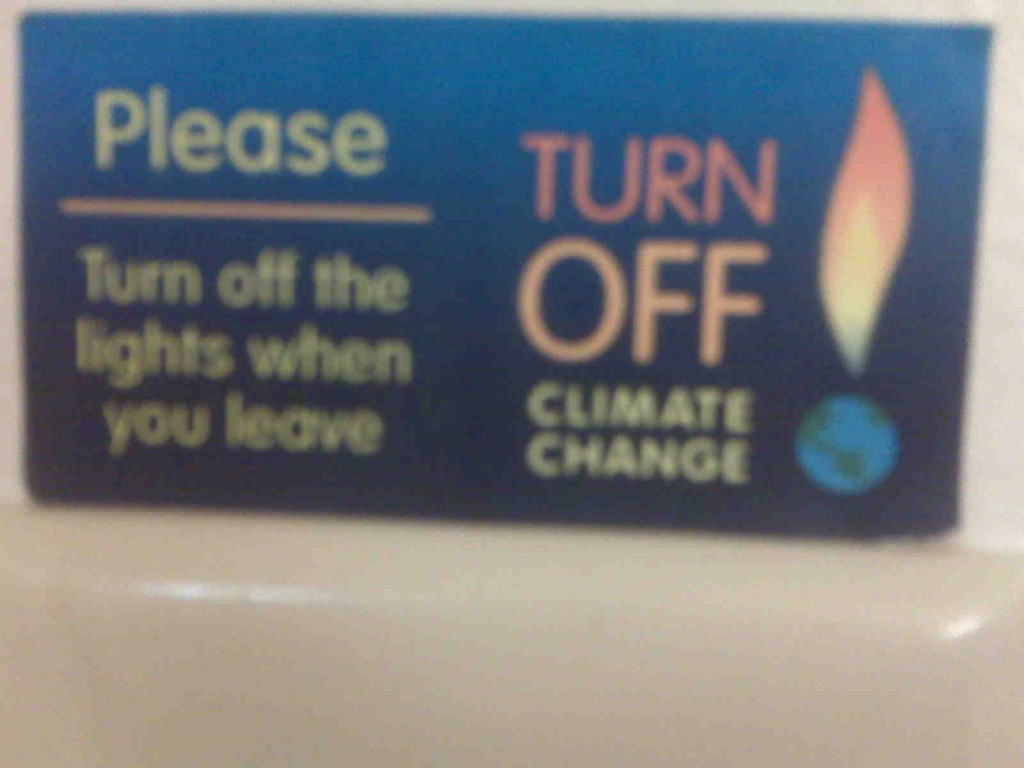
Reminder for making smart decisions
A TechnEcologic Lens for Viewing Global Warming
As someone who holds strong morals and ethics, and a believer in efficiency, I characterize the lens in which I view climate change as TechnEcologic, a blend of Parker & Blodgett’s technological and ecologic lenses(http://docs.google.com/fileview?id=0B2X6pLBKlqTLNjYxOGE5YTAtYjMwYy00MTJjLTlkMjUtZDcyMjE1OTgzYzVi&hl=en). I feel that people need to be properly educated on global warming and the consequences of not acting quick enough in order to help minimize the already disastrous effects global warming will have on our planet. One way we can achieve this is by incorporating global warming into school science curriculum’s, which will promote a stronger ecological conscience,” which will then spread to the parents. Another way we can help alleviate our carbon footprint is by creating and encouraging people to use products and appliances. By make the use of energy efficient technology a social norm, more people will use them, and discourage the usage of the usage of non-efficient products and appliances. The ecological lens described by Parker & Blodgett’s suggests that people will make responsible choices when they have a full understanding of the repercussions of carelessness. In a poll taken earlier this year, Global warming was the last issue on the American’s list of priorities (http://www.skepticsglobalwarming.com/?p=12403) even though it threatens not only the lives of our future generations but of human kind and other species living on out planet! I feel that this is due to the uncertainties of global warming, but watching the polar ice caps melt is more than enough to convince me. Making responsible decisions, especially as college students, older siblings, and any other role we play in society, is vital to setting an “ecological conscience,” one that will set the bar for the future generations, which will be the ones who will have to learn to mitigate the inevitable effects of our warming planet. Decisions as simple as unplugging electronic chargers, turning off the lights after you leave a room, and posting signs that remind people to make the right decisions, like a sticker I saw in the International House (http://www.dickinson.edu/departments/campuslife/houses.html).
This is where the technological lens comes into play. The creation of energy efficient products, like Energy Star appliances, allows consumers to make “green” decisions easily. Even though these appliances are slightly more expensive than non-efficient, the savings on energy bills pays it off. Educating people about these energy efficient appliances, as well as other eco-friendly products, will give people more of an incentive to make “green” decisions, like replacing traditional light bulbs with fluorescent light bulbs, which are 4 times more efficient. MyTechnEcologic lens magnifies the importance of educating people of all ages, on global warming, and the importance of the use and further development of energy efficient technology. We can easily begin to do to help contribute to a greener neighborhood, nation, and world. For simple and inexpensive ways to go green within your room or home, please visit http://www.associatedcontent.com/article/1720628/10_easy_ways_to_go_green_every_day.html?cat=57 .